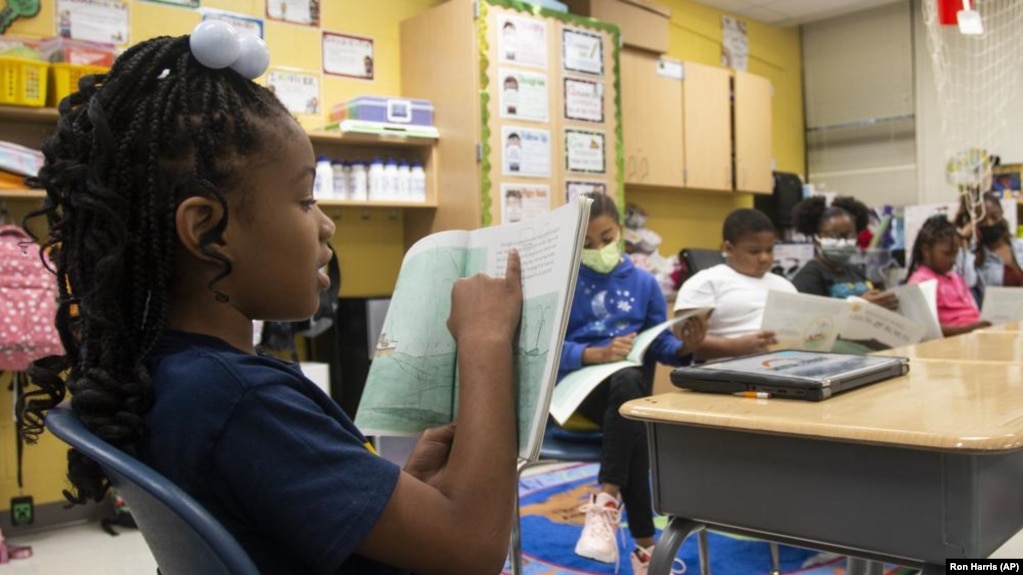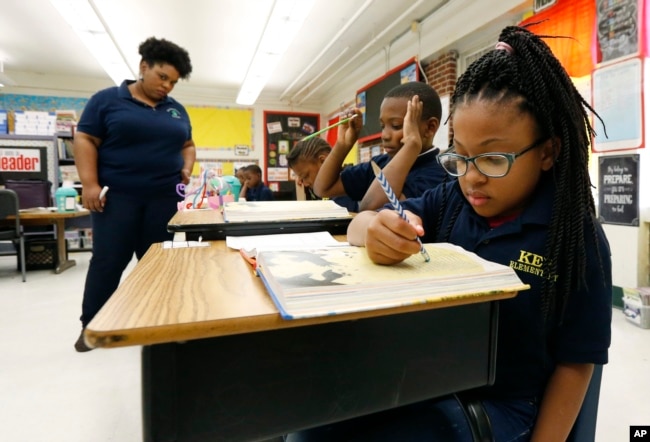After the Pandemic, Public Schools Struggle to Make Up for Lost Learning

Many young students spent much of the 2020-2021 school year learning from home. But some educators estimate that students who spent the most time learning remotely lost about half a school year of learning.
In first and second grade, children are six to eight years old. That age is a crucial time for learning to read. But many first and second graders who spent time learning remotely fell behind in reading ability. Now in third grade, many of those students are reading below expectations for their grade level.
Third grade also is an important year. That is because students must master basic reading skills. After third grade, learning math, science, and social studies requires reading comprehension. Research suggests that, if students do not have this comprehension by the end of third grade, they are more likely to struggle or even to stop going to school.
John King, Jr. is a former U.S. Secretary of Education. Of children who fell behind, he said, “Those kids are very vulnerable.” He questioned whether such children were getting all they needed: “If not, there’s the risk of a lost generation of students.”
Public schools in the city of Atlanta have taken steps to try to make up for that lost learning. The school day is now 30 minutes longer, and students who are behind attend small-group tutoring during that time. Atlanta schools also increased availability of summer school.

Elize'a Scott, a Key Elementary School third grade student, right, reads under the watchful eyes of teacher Crystal McKinnis, left, Thursday, April 18, 2019, in Jackson, Miss. (AP Photo/Rogelio V. Solis)
Superintendent for Atlanta Public Schools Lisa Herring said one of the best things to do to improve student performance “is to have time with the students.”
Malaysia Thomas is a student in Atlanta. The eight-year-old attends small-group tutoring for reading and math. She told the Associated Press, “It’s fun, but there are all these big words I can’t read.” Her mother, Diamond Anderson, said that she has seen Malaysia improve, and Anderson is thankful for any extra help.
Other American cities are providing additional services to try to help students who are behind. New York created an afterschool program to provide tutoring for students with special needs. And city officials say they plan to reduce class sizes at some schools.
Boston is using a new way to teach children to read. The city’s schools have increased summer school and are using an online tutoring company for students to use at home.
But many parents are not using the new services.
Thomas Kane is an economist at Harvard University near Boston. He has studied the effect of the pandemic on student learning. He said he does not think most school districts have a realistic idea of what they need to do to make up for lost learning.
He estimates Atlanta’s students lost a total of 18 weeks of instruction in math, and 12 weeks in reading, between March 2020 and June 2021. But Atlanta’s longer school day and summer school give students a little less than six weeks of additional learning.
Kane said that the school year should be four to five weeks longer for two years. But he admits that idea is not popular.
Drew Thomas is another student in Atlanta who has attended small-group tutoring. But her mother has no plans to stop paying for a private tutor to help Drew learn. Drew’s mother said, “I just can’t let her fall behind.”
Words in This Story
remotely –adv. from a distance (such as learning through a computer instead of being in the same room with a teacher).
crucial -adj. very important and necessary
master -v. gain or have a high level of skill at a particular activity or task
comprehension -n. understanding; the ability to understand fully
vulnerable -adj. capable of being damaged mentally or physically (for example, babies are very vulnerable)
tutor -v. to teach a student individually (not in a group), usually for a specific subject or purpose, such as math
tutor -n. a person who gives individual instruction to one student, usually for a specific or small number of subjects
superintendent n. – a director or supervisor.
https://learningenglish.voanews.com/a/after-the-pandemic-public-schools-struggle-to-make-up-for-lost-learning/6726825.html


